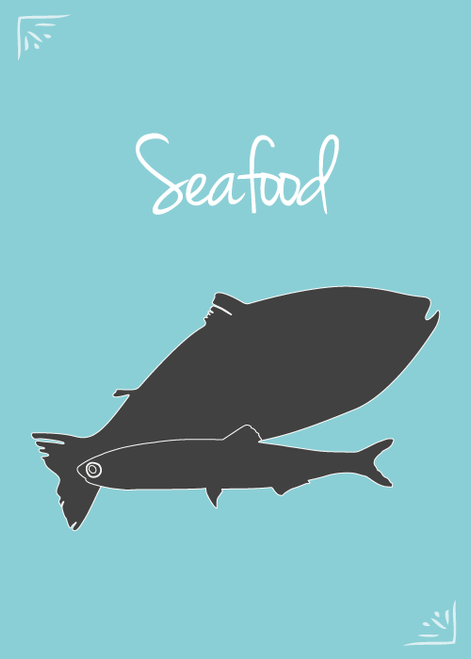Locally Caught, Flash Frozen, Raw Wild Pacific Sardines have a full flavor and are loaded with essential nutrients including Omega 3, protein, calcium, phosphorus, potassium, iron, and CoQ10.
SFRAW reccomends:
- Avoid feeding seafood & fish to cats.
- Avoid feeding seafood & fish to animals with renal/kidney, urinary or bladder imbalances, weaknesses or conditions of concern.
- Avoid seafood in individuals that commonly experience histamine reactions or mast cell activation syndrome.
Feeding & Handling:
Keep frozen and serve frozen (most dogs prefer this and may not tolerate/consume if served defrosted)
When introducing fish for the first time, start with a small slice/piece once per day. Increase to feeding a full fish or larger amounts, over a week or two.
How Much To Feed:
- Feed fish as up to 10% of the overall menu or diet for best results.
- Certain breeds of dogs with a genetic/breed indigenous or ancestral heritage originating from cultures or regions for which seafood is a primary or predominant food may do best with larger amounts in the diet, but we do not recommend exceeding 30% maximum long-term.
Benefits of Feeding Frozen Raw Sardines
- High in Omega-3 Fatty Acids: Sardines are rich in omega-3 fatty acids, which support a healthy immune system, reduce inflammation, and promote healthy skin and coat.
- Low in Mercury: Sardines are generally low in mercury compared to larger fish, making them a safer option for regular feeding.
Risk of Feeding Raw Sardines
Thiaminase: Sardines contain thiaminase, an enzyme that can break down thiamine (vitamin B1). To prevent thiamine deficiency, it’s important to:
-
- never add thiaminase containing species of fish to meals if they wil be stored in the same containers/do not add sardine fish to "meal prep" meals or ground menus. Feed sardines at meal time, added right before eating or feed them seperately from other foods
- balance feeding of sardines with thiamine-rich foods (for example, pork loin) .
Thiamine (vitamin B1) is an essential vitamin for dogs and cats. They must obtain this nutrient from their diet daily in order to nor become deficient. Raw diets provide the necessary amount of thiamine.
More about Thiamine & Thiaminase:
Certain species of raw fish and fish from certain regions contain thiaminase. Thiaminase is an enzyme that metabolizes or breaks down thiamine (B1) into pyrimidine and thiazole. It is an antinutrient when consumed.
Feeding too much of thiaminase containing fish, storing these fish with other ingredients (meal prepped meals, for example), grinding these fish into your food/recipies can cause a deficiency in vitamin B1 that can result in serious neurological problems.
So as long as you feed a selection of different seafood (not the same fish all the time) and regularly feed thiamine rich foods, (especially pork, but also lamb liver, chicken liver, lamb kidney, duck liver) feeding fish containing thiaminase will not cause a B1 deficiency. This is a risk only if fed in excess, or if these fish are stored with or ground in with other ingreients in prepared raw diets or diy raw meals.






